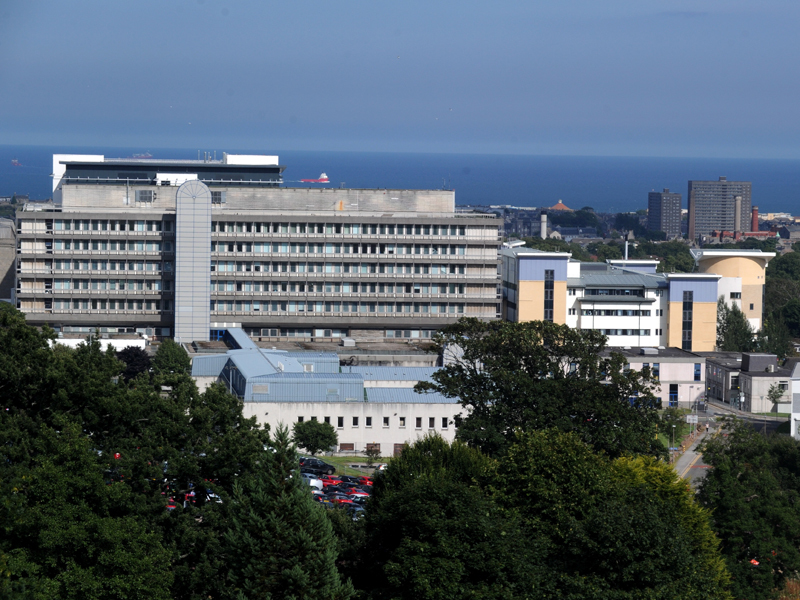Health chiefs have approved a £1.85million plan to bring two mothballed hospital theatres at Aberdeen Royal Infirmary back into use to tackle waiting times.
Members of NHS Grampian’s board yesterday agreed to revamp the operating rooms while maintenance work is carried out in the main surgical department.
They were told that additional capacity would also be required when the groundbreaking robotic-assisted surgical system – the first of its kind in Scotland – is installed.
The theatres are expected to be operational by October.
The backlog maintenance plan was approved by the board in February 2014 and aims to extend the life of some of ARI’s ageing buildings by 10-15 years.
The two theatres which will be brought back into use were previously part of the now-demolished emergency department but were spared the bulldozers as they formed part of the ground floor of another hospital building.
Other options explored included improving the efficiency of existing theatres at ARI, delaying the maintenance programme, using mobile theatres or creating new ones.
The report presented to the board said: “There is, however, a requirement now to provide additional theatre capacity at ARI and the reinstatement of the theatres is the most cost-effective and feasible way to do so.”
The board’s finance director, Alan Gray, told the meeting yesterday: “We will need this extra capacity over the period to cover ourselves when the maintenance work is taking place.”
Interim chief executive Malcolm Wright said: “I think this is a prudent investment.
“I think without the capacity we need we will struggle to meet our waiting time targets.”
Professor Jamie Weir, chairman of Aberdeen-based patients lobby group PACT, welcomed the decision last night.
He said: “I think it’s a good idea, anything that keeps the patients from waiting too long for treatment has got to be welcomed.
“I know targets are a big thing politically, but you have to remember that it’s the patients who are actually suffering while waiting for treatment.
“The maintenance work is very important for our hospitals, especially given the historic under-funding of NHS Grampian.”
